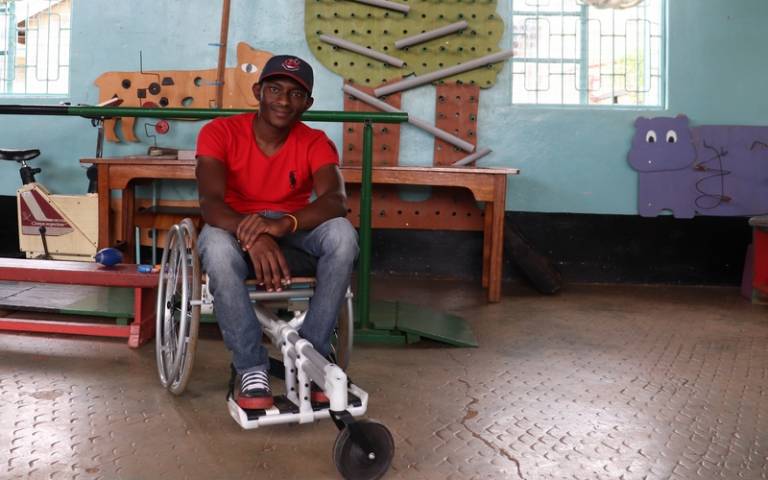Improving access to life changing assistive technologies
UCL experts are leading a global programme to improve access to life-changing assistive technology and ensure social justice for the millions of people with disabilities around the world.

8 October 2020
Almost a billion people around the world need assistive technology (AT). Wheelchairs, prosthetics, hearing aids, glasses and digital technologies are critical in enabling equal access to employment, education and independence for people with disabilities.
The UCL-based Global Disability Innovation (GDI) Hub is leading AT2030, a £20 million UK aid-funded programme to improve access to AT for millions of people worldwide. The GDI Hub is working in partnership on the programme with UN agencies (WHO, UNESCO and UNICEF), global academic institutions and non-governmental organisations (NGOs), It brings together partners who have not traditionally worked in AT with those who have, to test new ideas with users, experts and innovators.
Founded in 2016 as a legacy of the London 2012 Paralympic Games, the GDI Hub is one of the first research initiatives to begin operating within UCL East, the university’s new campus located on Queen Elizabeth Olympic Park in Stratford, east London.
““By 2050 two billion people would benefit from assistive technology, yet 90% will not have access.”
“It is estimated that by 2050 two billion people would benefit from AT, yet 90% will not have access,” says Professor Catherine Holloway (UCL Computer Science), Academic Director of the GDI Hub. “AT2030 is changing that.”
Testing community-led, systems-focused and market-driven approaches in more than 15 countries, AT2030 is supporting innovations and entrepreneurs, field-testing solutions, influencing policymaking, and exploring new ways to deliver AT.
In Kenya, the GDI Hub is developing a new model for wheelchair provision, in collaboration with Motivation, an NGO that aims to change the way wheelchairs are provided around the world.
They have trialled a new system for providing high quality, made-to-measure wheelchairs, - evaluating new design and production processes to understand how generative design and 3D printing can augment current wheelchair service provision models, through local manufacturing.
Working with clinicians, manufacturers and wheelchair users, the collaboration enabled the development of a bespoke wheelchair that met international standards. The work in Kenya is now informing the development of a new version of the product, which Motivation aims to bring to the market internationally.
“We have set ambitious targets to provide better access to AT for the millions of people who need it to empower them to meet their potential,” adds Professor Holloway.
 Close
Close


